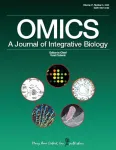(Press-News.org) WASHINGTON --- Researchers at Georgetown University’s Lombardi Comprehensive Cancer Center studied the microbiome of people with colorectal cancer and found the make-up of the bacteria, fungi and viruses in a person’s tumor varied significantly depending on whether they were diagnosed with early-onset disease (age 45 or younger) or late-onset disease (age 65 or older). These results may help answer the riddle of why more young people are developing colorectal cancer, particularly those who have no known identifiable risk factors for the disease.
The findings will be presented at the American Society of Clinical Oncology 2023 annual meeting in Chicago in June.
Colorectal cancer incidence rates have been declining for several decades in people over 55, in part because of the increased use of screening for the disease, particularly with colonoscopy which can find and remove polyps before they become cancerous. But nearly double the number of young adults under 55 are being diagnosed with colorectal cancer compared to a decade ago, with an increase in the incidence rate going from 11% in 1995 to 20% in 2020.
“Younger people with colorectal cancer have more biologically aggressive cancers and whatever survival benefit they have by being younger is outweighed by the more aggressive tumor biology. We also know, that for the most part, genetics doesn’t explain the recent rise in young-onset disease,” said Benjamin Adam Weinberg, MD, an associate professor of medicine at Georgetown Lombardi. “But we have trillions of bacteria residing in our body, including in our gut, some of which are implicated in the development of colorectal cancer, hence we think the microbiome may be an important factor in the development of the disease as it is involved in the interplay between a person’s genetics, environment, diet and immune system.”
Scientists have known for a while that certain microbes can disturb the lining of the colon and promote tissue inflammation. This can result in mutations to the DNA of cells in the colon and lead to cancer. Researchers also know that one type of bacteria, Fusobacterium nucleatum (F. nuc), can promote cancerous growth by suppressing immune responses in the colon.
To better understand the role of the microbiome and how its influence varies depending on a person’s age of onset of colorectal cancer, Weinberg and colleagues looked at the DNA and the microbiome of tumors from 36 patients with colorectal cancer who were diagnosed before age 45 as well as specimens from 27 people who were diagnosed after age 65.
Overall, the investigators detected 917 unique bacterial and fungal species in the tumors. One of the most common bacteria found was F. nuc, which appeared equally in about 30% of both early and late-onset tumors. Differences were seen in Cladosporium sp., which was found more commonly in early-onset disease, whereas Pseudomonas luteola, Ralstonia sp., and Moraxella osloensis were seen more commonly in late onset disease. In terms of composition, Clostridium perfringens, Escherichia coli, Leptotrichia hofstadii, Mycosphaerella sp., Neodevriesia modesta, Penicillium sp., and Leptosphaeria sp., each made up 11% of the microbiome in people with late-onset disease but these organisms were not found at all in people with early-onset disease.
Weinberg says with the current data, and with future efforts to collect more samples, they anticipate expanding their research efforts to continue exploring the relationship between the microbiome and other factors that contribute to colorectal cancer.
“Because we have tumor genetic data and diet questionnaire results from many of our patients, we hope to explore more relationships and other aspects of how the microbiome impacts colorectal cancer progression in the future,” said Weinberg. “We are also interested in the circulating microbiome, such as bacteria that could be picked up in a blood sample, and how this correlates with bacteria in the gut and in the tumor.”
###
In addition to Weinberg, authors include Hongkun Wang, Xue Geng, Robert K. Suter, Shrayus Sortur, Myra E. Green, Emily Bakhshi, Krysta Chaldekas, Brent T. Harris, Dionyssia Clagett and John Marshall at Georgetown. An additional author is Shadi Shokralla from Clear Labs, Menlo Park, CA.
This research was supported by the Colorectal Cancer Alliance and the Victoria Casey and Peter Teeley Foundation. Weinberg reports that he serves on advisory boards for Bayer, HalioDx, AstraZeneca/Daiichi Sankyo, and Merus, DoMore Diagnostics; serves on speakers bureaus for Lilly, Bayer, Taiho, Sirtex, HalioDx, AstraZeneca/Daiichi Sankyo, Merus, and Seagen; and has received travel funding from Caris and Merus.
About Georgetown University’s Lombardi Comprehensive Cancer Center
Georgetown’s Lombardi Comprehensive Cancer Center is designated by the National Cancer Institute (NCI) as a comprehensive cancer center. A part of Georgetown University Medical Center, Georgetown Lombardi is the only comprehensive cancer center in the Washington D.C. area. It serves as the research engine for MedStar Health, Georgetown University’s clinical partner. Georgetown Lombardi is also an NCI recognized consortium with John Theurer Cancer Center/Hackensack Meridian Health in Bergen County, New Jersey. The consortium reflects an integrated cancer research enterprise with scientists and physician-researchers from both locations. Georgetown Lombardi seeks to improve the diagnosis, treatment, and prevention of cancer through innovative basic, translational and clinical research, patient care, community education and outreach to service communities throughout the Washington region, while its consortium member John Theurer Cancer Center/Hackensack Meridian Health serves communities in northern New Jersey. Georgetown Lombardi is a member of the NCI Community Oncology Research Program (UG1CA239758). Georgetown Lombardi is supported in part by a National Cancer Institute Cancer Center Support Grant (P30CA051008). Connect with Georgetown Lombardi on Facebook (Facebook.com/GeorgetownLombardi) and Twitter (@LombardiCancer).
###
END
Types of bacteria vary widely in tumors of people with early vs. late-onset colorectal cancer
Findings hint at possible reason for increase in cases of the disease in younger people
2023-05-25
ELSE PRESS RELEASES FROM THIS DATE:
ASCO: Luspatercept enables majority of patients with MDS to end reliance on blood transfusions
2023-05-25
ABSTRACT: 7003
Treatment with luspatercept improved red blood cell counts and erythroid responses compared to treatment with epoetin alfa in patients with myelodysplastic syndromes (MDS), allowing the majority to no longer require regular blood transfusions. Results from the Phase III COMMANDS trial, led by researchers at The University of Texas MD Anderson Cancer Center, were reported at the 2023 American Society of Clinical Oncology (ASCO) Annual Meeting.
The study evaluated the efficacy and safety of first-line treatment with luspatercept, which enhances red blood cell maturation, compared with epoetin alfa, a therapy commonly used for low blood cell count, ...
ASCO23: ‘Better sexual health for female patients on endocrine therapy: Strategies across the age spectrum’
2023-05-25
MIAMI, FLORIDA (Strictly EMBARGOED Until May 25, 2023, at 5 P.M. EDT) – Breast cancer treatments that can save a woman’s life can seriously harm her sexual health, says Dr. Kristin E. Rojas, a breast cancer surgeon at Sylvester Comprehensive Cancer Center at the University of Miami Miller School of Medicine. Although doctors have not historically been prepared to help patients manage these toxic side effects, Rojas is leading efforts to turn the tide.
Rojas, both a fellowship-trained breast surgical oncologist and a gynecologic surgeon, is a national leader in treating sexual dysfunction in female ...
ASCO23: ‘Safety & efficacy of the novel BRAF inhibitor FORE8394 in patients with advanced solid & CNS tumors’
2023-05-25
MIAMI, FLORIDA (EMBARGOED UNTIL MAY 25, 2023, AT 5 P.M. ET) – An early-phase study led by researchers at Sylvester Comprehensive Cancer Center at the University of Miami Miller School of Medicine along with other Cancer Centers, suggests that an experimental therapy may have promising results in treating cancers with BRAF gene alterations – including certain mutations not previously targeted by BRAF inhibitors.
The Phase 1/2a study looking at safety and dosing enrolled 113 patients and targeted a wide range of cancers, including high-grade glioma, low-grade glioma, colorectal cancer, papillary thyroid cancer, melanoma, pancreatic cancer, ovarian cancer, non-small cell ...
MD Anderson Research Highlights: ASCO 2023 Special Edition
2023-05-25
CHICAGO ― The University of Texas MD Anderson Cancer Center’s Research Highlights showcases the latest breakthroughs in cancer care, research and prevention. These advances are made possible through seamless collaboration between MD Anderson’s world-leading clinicians and scientists, bringing discoveries from the lab to the clinic and back.
This special edition features presentations by MD Anderson researchers at the 2023 American Society of Clinical Oncology (ASCO) Annual Meeting. In addition to these studies, forthcoming press releases will highlight groundbreaking clinical research, including Phase III trial results evaluating ...
Penn Medicine at the 2023 ASCO Annual Meeting
2023-05-25
CHICAGO – Researchers from the Abramson Cancer Center and Perelman School of Medicine at the University of Pennsylvania will present data on the latest advances in clinical cancer research at the 2023 American Society of Clinical Oncology (ASCO) Annual Meeting from June 2-6 in Chicago, Illinois. Follow us on Twitter @PennMDForum and @PennCancer for updates.
Expert Interviews
Experts from the Perelman School of Medicine are available to comment on a wide range of topics in cancer science and medicine during the meeting on site and by video call, telephone, or email. To arrange interviews, please contact Meagan Raeke at Meagan.Raeke@pennmedicine.upenn.edu ...
Internal job candidates have a leg up
2023-05-25
AUSTIN, Texas – Internal job candidates have an advantage over external candidates, because they tend to work harder shortly before a hiring decision, according to new research from The University of Texas at Austin. This is true even when an internal candidate’s skills are inferior.
Eric Chan, assistant professor of accounting at the McCombs School of Business, found that when a new job is on the line, employees will exert more effort to increase their chances of promotion — especially right before the decision. And managers are more likely ...
C. difficile, emerging pathogens, genomics, and antimicrobial resistance
2023-05-25
A new study published in the peer-reviewed OMICS: A Journal of Integrative Biology identified genes for virulence and antimicrobial resistance in two bacteria that co-occur with C. difficile, suggesting these pathogens as emerging potential threats in planetary health. Click here to read the article now.
Thokur Sreepathy Murali, PhD, Ankit Singh Tanwar, Padival Shruptha and colleagues from Manipal Academy of Higher Education, India, and co-author Angela Brand, MD, PhD, MPH from Maastricht University, The Netherlands, performed comparative genome analyses of three Clostridia species, ...
Groundbreaking images of root chemicals offer new insights on plant growth
2023-05-25
On a sunny springtime stroll through a park, it’s easy to ignore the parts of plants that are hidden from view. Plant biologists see things differently. They look below the surface where plant roots are organized in elaborate systems that are critical to the organism’s development. Intricately organized tree root systems, for example, can span as far underground as the tree grows high above the soil.
Applying an advanced imaging technology to plant roots, researchers at the University of California San Diego and Stanford University ...
LJI-led team wins top Nucleate honors for virus vaccine development proposal
2023-05-25
LA JOLLA, CA—A San Diego team, led by scientists at La Jolla Institute for Immunology (LJI), has won the top prizes in the Nucleate Activator competition. Out of 1,000 initial competitors, the LJI team advanced to the final four teams and swept all the prizes they entered for. Their winning research proposal outlines how scientists could stop dengue virus and Zika virus by developing sophisticated vaccines that activate both B cells and T cells.
Nucleate is a student-led, non-profit organization dedicated to empowering early-stage, ...
Hydrogen battery: Storing hydrogen in coal may help power clean energy economy
2023-05-25
UNIVERSITY PARK, Pa. — The quest to develop hydrogen as a clean energy source that could curb our dependence on fossil fuels may lead to an unexpected place — coal. A team of Penn State scientists found that coal may represent a potential way to store hydrogen gas, much like batteries store energy for future use, addressing a major hurdle in developing a clean energy supply chain.
“We found that coal can be this geological hydrogen battery,” said Shimin Liu, associate professor of energy and mineral engineering at Penn State. “You could inject and store the hydrogen energy and have it there when you need to use it.”
Hydrogen ...
LAST 30 PRESS RELEASES:
Under the Lens: Microbiologists Nicola Holden and Gil Domingue weigh in on the raw milk debate
Science reveals why you can’t resist a snack – even when you’re full
Kidney cancer study finds belzutifan plus pembrolizumab post-surgery helps patients at high risk for relapse stay cancer-free longer
Alkali cation effects in electrochemical carbon dioxide reduction
Test platforms for charging wireless cars now fit on a bench
$3 million NIH grant funds national study of Medicare Advantage’s benefit expansion into social supports
Amplified Sciences achieves CAP accreditation for cutting-edge diagnostic lab
Fred Hutch announces 12 recipients of the annual Harold M. Weintraub Graduate Student Award
Native forest litter helps rebuild soil life in post-mining landscapes
Mountain soils in arid regions may emit more greenhouse gas as climate shifts, new study finds
Pairing biochar with other soil amendments could unlock stronger gains in soil health
Why do we get a skip in our step when we’re happy? Thank dopamine
UC Irvine scientists uncover cellular mechanism behind muscle repair
Platform to map living brain noninvasively takes next big step
Stress-testing the Cascadia Subduction Zone reveals variability that could impact how earthquakes spread
We may be underestimating the true carbon cost of northern wildfires
Blood test predicts which bladder cancer patients may safely skip surgery
Kennesaw State's Vijay Anand honored as National Academy of Inventors Senior Member
Recovery from whaling reveals the role of age in Humpback reproduction
Can the canny tick help prevent disease like MS and cancer?
Newcomer children show lower rates of emergency department use for non‑urgent conditions, study finds
Cognitive and neuropsychiatric function in former American football players
From trash to climate tech: rubber gloves find new life as carbon capturers materials
A step towards needed treatments for hantaviruses in new molecular map
Boys are more motivated, while girls are more compassionate?
Study identifies opposing roles for IL6 and IL6R in long-term mortality
AI accurately spots medical disorder from privacy-conscious hand images
Transient Pauli blocking for broadband ultrafast optical switching
Political polarization can spur CO2 emissions, stymie climate action
Researchers develop new strategy for improving inverted perovskite solar cells
[Press-News.org] Types of bacteria vary widely in tumors of people with early vs. late-onset colorectal cancerFindings hint at possible reason for increase in cases of the disease in younger people




